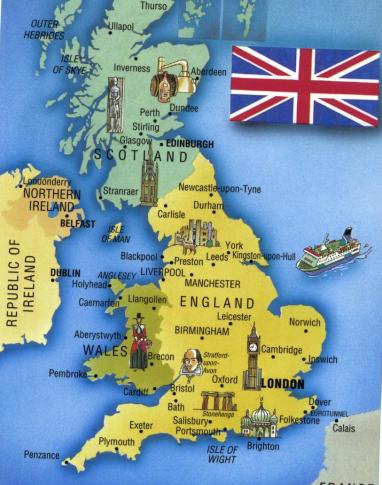UK on triple-dip recession alert

"Early data suggest the UK is heading for a 'treble dip', with GDP shrinking again in the fourth quarter of 2012. We expect the economy will continue to underperform the OBR's forecasts in 2013-14, leading to further sizeable revenue shortfalls and deficit overshoots."
Larry Elliott, economics editor
The City has put the UK on triple-dip recession alert after news that falling factory and North Sea production have sent the output of industry plunging to its lowest level in 20 years.
With the financial markets fearful that the final three months of 2012 will see the economy contract for the fourth quarter in the last five, David Cameron said manufacturers were short of skills and needed to learn lessons from Germany in order to develop a modern industrial workforce.
The prime minister was speaking as the coalition's hopes of economic recovery received a setback from far weaker than expected official data from industry – the sector of the economy targeted for growth by the government.
Amid signs that a collapse in demand from the crisis-stricken eurozone is affecting UK exporters, manufacturing production dropped 1.3% in October and was more than 2% down on a year earlier.
Germany, the biggest economy in the single-currency area, reported that its manufacturing sector is also stuttering. Output from German factories dropped 2.4% in September.
Financial markets were optimistic that UK industrial production, which includes oil and gas from the North Sea and energy supply as well as manufacturing, would post a healthy rise in October. But the Office for National Statistics reported an 0.8% drop in output to a level not seen since the recession of the early 1990s.
North Sea production has fallen by almost 50% in the past three years and saw a fresh fall in October.
Samuel Tombs, of Capital Economics, said: "The further drop in industrial production in October to its lowest level in two decades raises the chances of a triple dip recession in the wider economy.
"Even if October's fall in production is reversed over the next two months, the sector will knock about 0.3% off quarterly GDP growth. And we expect production to fall further in 2013 as the eurozone's recession deepens and high inflation holds back domestic consumer demand for manufactured goods."
The gloomy news from industry came at the end of a run of poor economic data for services, construction and trade, leaving City economists questioning whether the UK economy would meet even the heavily scaled down forecasts for the economy presented by George Osborne in his autumn statement this week.
The chancellor said he expected the economy to contract by 0.1% this year before growing by 1.2% in 2013, on the basis of evidence from the independent Office for Budget Responsibility.
He sought to boost industry with more generous investment allowances, higher infrastructure spending and a cut in corporation tax. To qualify as a triple dip recession, the economy would need to decline in the final three months of 2012 and the first three months of 2013.
Michael Saunders, UK economist at Citibank, said : "Early data suggest the UK is heading for a 'treble dip', with GDP shrinking again in the fourth quarter of 2012. We expect the economy will continue to underperform the OBR's forecasts in 2013-14, leading to further sizeable revenue shortfalls and deficit overshoots."
Saunders said government debt as a share of national output was likely to hit 100% over the coming years as budget deficits piled up in response to weak growth. "We have argued for a while that the UK will lose its AAA rating in the next two to three years and it now seems likely that this will happen in the next 12-18 months, reflecting the higher path for the debt/GDP ratio plus rising uncertainty over how and whether the government will achieve the savings needed to stabilise and reverse the debt trajectory."
A leading thinktank, the National Institute for Economic and Social Research, said growth had slowed sharply since the 1% growth in the third quarter of 2012 that marked the end of the nine-month double dip recession. It estimated growth of 0.1% in the three months to November and said the economy would not be strong enough in 2013 to reduce unemployment.
The prime minister, on a visit to the West Midlands, said the competitiveness of industry was being hampered by a skills deficit. Cameron urged schools, colleges and businesses to take a "more Germanic approach" by consulting on what skills were most needed in the next generation of workers. "We need frankly to have a more Germanic approach to that skills deficit. I think we will crack it, but it will take time."
The shadow business secretary, Chuka Umunna, said the chancellor was wrong to say that Britain was on the mend. "Osborne says the economy is healing but yesterday we learnt the trade deficit has grown, today that manufacturing fell by 2.1% on the year. The increasing trade deficit and fall in manufacturing again underlines the need for the implementation of a proper industrial strategy"
David Kern, chief economist at the British Chambers of Commerce, said: "The decline in manufacturing was much larger than expected. The wider industrial production figures were also bleak, with a decline of 0.8% instead of the increase that was anticipated. The new data increases the risk that GDP will record a decline in the fourth quarter of the year. In our recent forecast, we predicted that manufacturing output would see a decline of 1.1% in 2012 as a whole. However unless there is significant rebound in the final two months of the year, the fall could be even larger." The Guardian




 del.icio.us
del.icio.us Digg
Digg

Post your comment